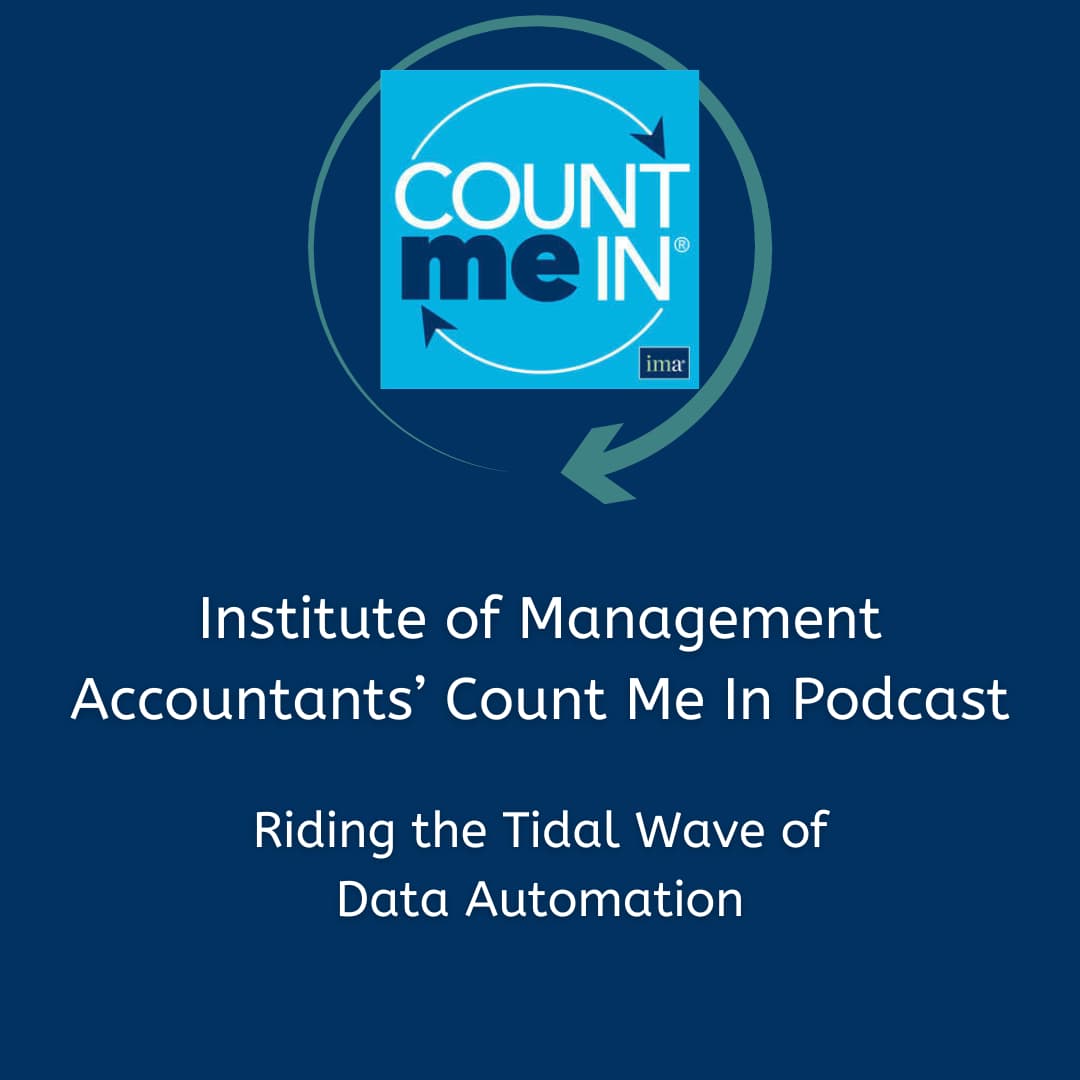Embracing Automation: A Journey from Medicine to Accounting

Embracing Automation: A Journey from Medicine to Accounting is a meticulously researched and insightful document that delves into the profound impact of automation in the field of accounting. With a formal tone, this document explores how automation has revolutionized traditional accounting practices, highlighting the benefits and challenges encountered along the way. Its comprehensive analysis provides a valuable resource for professionals seeking to adapt and thrive in an increasingly automated industry.
In an enlightening conversation on the “Count Me In” podcast, hosted by Adam Larson, Anthony Nitsos, fractional CFO and founder of SaaS Gurus, delves into the transformative world of data automation and its implications for management accountants. Anthony’s journey is anything but ordinary, transitioning from a career in medicine to becoming a beacon in the accounting and automation landscape. His story not only highlights the adaptability required in today’s fast-paced environment but also sheds light on the foundational role of accounting in any business and the criticality of embracing the upcoming wave of financial automation.
From Medicine to Manufacturing: A Serendipitous Shift
Anthony’s academic pursuits in medicine at the University of Michigan took an unexpected turn when he realized his true calling lay elsewhere. This realization led him down an unconventional path from medicine to manufacturing, where he discovered his knack for process re-engineering and the intricacies of logistics. His medical training inadvertently prepared him for the complexities of manufacturing, drawing parallels between the systemic nature of the human body and corporate organizations.
The ERP Era and the Y2K Catalyst
The late ’90s brought with it the Y2K frenzy, a period marked by a surge in ERP implementations aimed at averting the anticipated millennium bug disasters. It was during this time that Anthony honed his accounting skills, recognizing the undeniable link between manufacturing decisions and their financial repercussions. This era was pivotal, as it underscored the importance of integrating operations with finance through ERP systems, laying the groundwork for Anthony’s future endeavors.
A Green Field Implementation: Scaling with Automation
Anthony’s role as a controller for a Japanese manufacturing company presented him with the unique opportunity to design a data collection and reporting system from scratch. This project aimed at scaling the company tenfold in three years, was a testament to the power of automation and efficient data management. By employing barcode scanners and ensuring a single point of data entry, Anthony and his team were able to maintain a lean back office even as the company’s revenue skyrocketed. This experience underscored the principle that accurate data entry at the source is critical to achieving high-quality, actionable information.
The Advent of SaaS and the Future of Automation
Fast forward to the present, and the landscape of automation has evolved significantly, with Software as a Service (SaaS) taking center stage. Anthony emphasizes that while the basic principles of data management remain constant, the tools and methodologies have undergone a radical transformation. The shift from on-premise solutions to cloud-based services like G Suite and NetSuite has democratized access to sophisticated automation tools, enabling even small and medium-sized businesses to streamline their operations and reduce costs.
However, this shift also brings to light the potential for job displacement due to automation. Anthony cautions that accounting, being a highly structured and rules-based domain, is particularly susceptible to automation through machine learning and AI. As these technologies continue to advance, the role of the accountant is bound to evolve, necessitating a proactive approach to learning and adaptation.
Navigating the Tidal Wave of Automation
To ride the wave of automation rather than be drowned by it, Anthony advises management accountants to immerse themselves in the latest tools and technologies and remain agile in the face of change. Embracing automation, understanding its implications on the workforce, and continuously seeking ways to add value beyond traditional accounting tasks are crucial steps for future-proofing one’s career.
Anthony Nitsos’s journey from the medical field to the forefront of accounting and automation serves as a compelling reminder of the transformative power of technology and the importance of adaptability in today’s dynamic business environment. As we stand on the cusp of a new era of financial automation, the insights shared by Anthony offer valuable guidance for management accountants everywhere, urging them to embrace change and seize the opportunities it presents.
For those intrigued by the possibilities of automation and eager to explore the intersection of accounting and technology, Anthony’s story is a beacon of inspiration. It serves as a call to action for accounting professionals to harness the power of automation, not only to enhance efficiency and accuracy but also to redefine their roles in an increasingly digital world.

